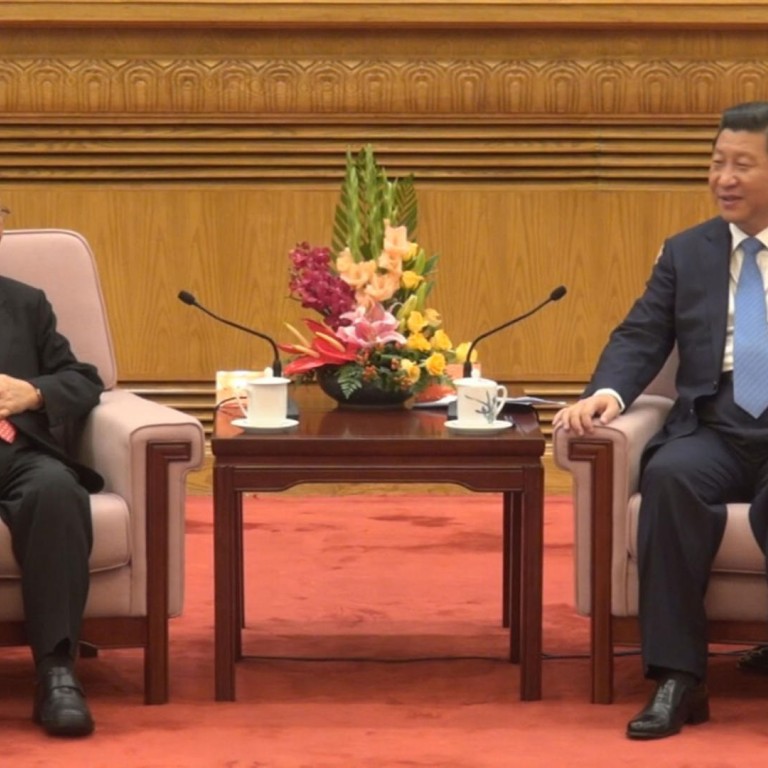
'One country, two systems' right formula for Taiwan, Xi Jinping reiterates
President Xi Jinping yesterday revived the idea of Taiwan and the mainland uniting under the formula of "one country, two systems".
President Xi Jinping yesterday revived the idea of Taiwan and the mainland uniting under the formula of "one country, two systems".
And he said there was no way Beijing would back away from its long-time goal of achieving cross-strait reunification.
But Taiwanese President Ma Ying-jeou flatly rejected the idea, saying it was "unacceptable" because it would cost the island its sovereignty.
Taiwan's Mainland Affairs Council and its Executive Yuan also issued statements rejecting the concept.
The "one country, two systems" formula, first proposed by Deng Xiaoping , is facing an unprecedented challenge in Hong Kong.
When Xi met a Taiwanese delegation in Beijing, he also underscored Beijing's long-standing position that secessionism was intolerable, and that Taiwan must work with the mainland to curb moves that would hamper the dream of unity.
Xi told the Taiwanese visitors, from more than 20 pro-unification groups including the island's New Party, that "cross-strait unification has long been our firm and unwavering stance", and "it is also an unchangeable fact that both Taiwan and the mainland belong to the same China".
While Xi stressed that peaceful reunification and the "one country, two systems" formula were the best ways to bridge the cross-strait political divide, he also hinted at flexibility. He said that before applying the formula, Beijing would "fully consider the real situation in Taiwan, opinions and suggestions from various sectors of the two sides of the Taiwan Strait, and take into account benefits and other arrangements for Taiwanese people".
In a statement hours later, Ma refused to accept the suggestion, saying Taiwan - as the Republic of China - had been a sovereign country for 103 years, and "the government insists on maintaining the status quo of no reunification, no independence and no use of force" as well as the "1992 consensus that allows the two sides to have a separate interpretation of the term of China".
The two sides were bitter rivals after the end of a civil war in 1949, but relations have improved sharply since Ma became president in 2008 and adopted a policy of engaging Beijing.
Wang Kao-cheng, a professor at the Institute of International Relations and Strategic Studies at Tamkang University in Taipei, said Xi "hopes to give others a clearer idea of what the mainland's position is about over 'one country and two systems'".
"He also wants to show that there will be more flexibility and more room for manoeuvre and discussion over that model."
Analysts said recent developments in Hong Kong and Taiwan had alerted Beijing to the loss of public faith in both places in "the one country, two systems" approach.
Thousands of Hongkongers took to the streets this month to protest against what they viewed as a breach of trust by Beijing over its promise of 50 years of autonomy for the city by tightening its control over Hong Kong's electoral process.
The protests sparked concerns and sharp criticism of Beijing in Taiwan.
Deng proposed the formula in 1978 to allow Hong Kong, Macau and Taiwan to maintain their own systems of governance as a path to reunification. In 1983, he promised Taiwan it would retain its autonomy and armed forces.

